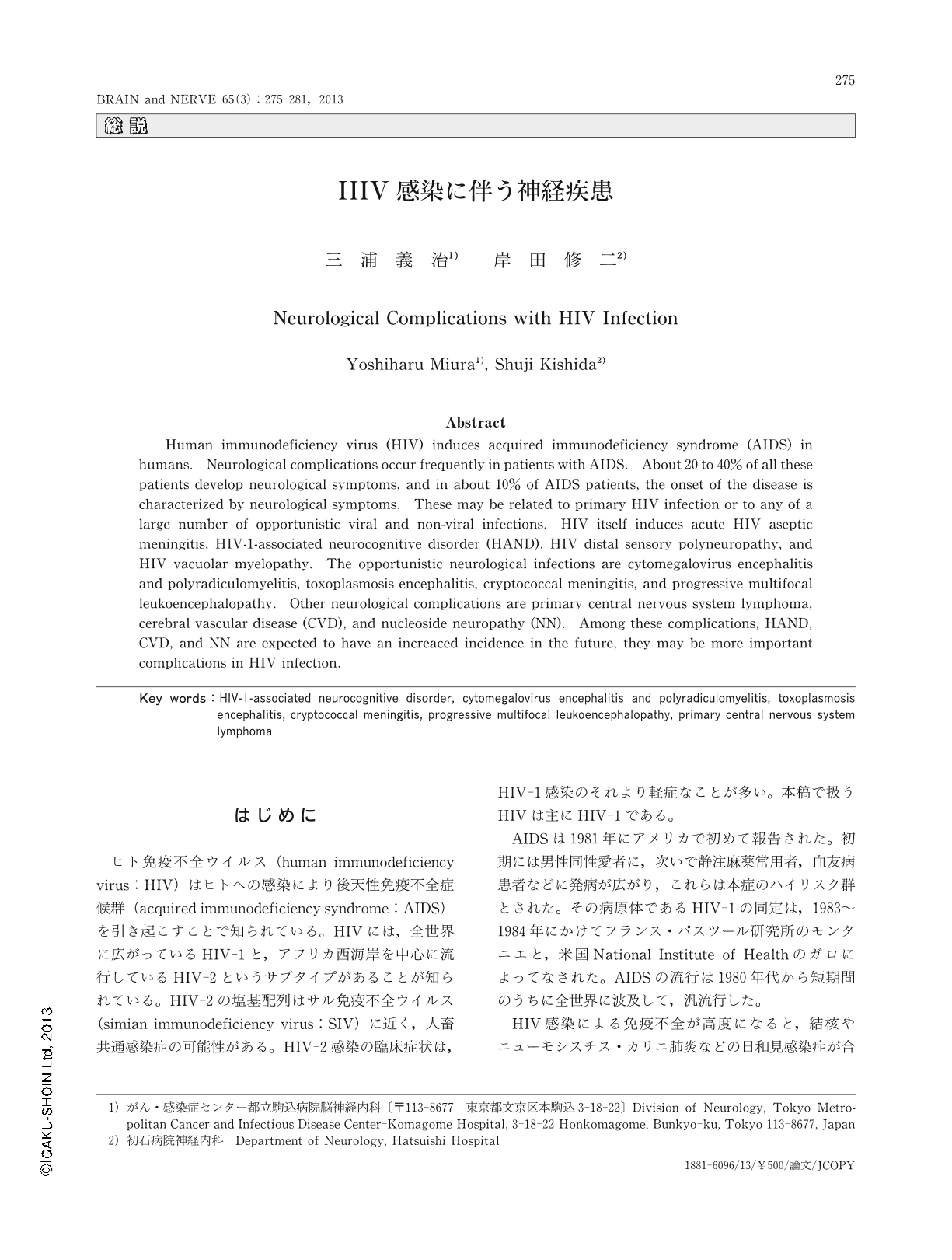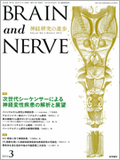Japanese
English
- 有料閲覧
- Abstract 文献概要
- 1ページ目 Look Inside
- 参考文献 Reference
- サイト内被引用 Cited by
はじめに
ヒト免疫不全ウイルス(human immunodeficiency virus:HIV)はヒトへの感染により後天性免疫不全症候群(acquired immunodeficiency syndrome:AIDS)を引き起こすことで知られている。HIVには,全世界に広がっているHIV-1と,アフリカ西海岸を中心に流行しているHIV-2というサブタイプがあることが知られている。HIV-2の塩基配列はサル免疫不全ウイルス(simian immunodeficiency virus:SIV)に近く,人畜共通感染症の可能性がある。HIV-2感染の臨床症状は,HIV-1感染のそれより軽症なことが多い。本稿で扱うHIVは主にHIV-1である。
AIDSは1981年にアメリカで初めて報告された。初期には男性同性愛者に,次いで静注麻薬常用者,血友病患者などに発病が広がり,これらは本症のハイリスク群とされた。その病原体であるHIV-1の同定は,1983~1984年にかけてフランス・パスツール研究所のモンタニエと,米国National Institute of Healthのガロによってなされた。AIDSの流行は1980年代から短期間のうちに全世界に波及して,汎流行した。
HIV感染による免疫不全が高度になると,結核やニューモシスチス・カリニ肺炎などの日和見感染症が合併する。近年,AIDS患者のカポジ肉腫は,ヘルペス8型ウイルスの感染が示唆されている。さらに,AIDS認知症症候群(AIDS dementia complex:ADC)のような精神神経症状のように,AIDSは多彩な症候を呈することも知られている。ほかにHIV遠位感覚優位多発ニューロパチー(HIV distal sensory polyneuropathy:DSPN),HIV空胞ミエロパチー(HIV vacuolar myelopathy)を合併することもあり,そのほか日和見感染症であるトキソプラズマ症,クリプトコッカス髄膜炎,サイトメガロウイルス(cytomegalovirus:CMV)感染症,進行性多巣性白質脳症(progressive multifocal leukoencephalopathy:PML)や,脳原発悪性リンパ腫,脳血管障害などの合併も知られるようになった。これらHIV感染症患者は50%以上が罹患中に神経系の障害をきたすといわれ,神経合併症の多くは,HIV感染の進行したAIDSの時期に発症する。
1996年にHIVに対して有効な多剤併用療法が導入されて以来,全身性日和見感染症と同様にHIV脳症などの神経合併症の発症頻度も著明に減少しているが,逆にやや軽症の神経認知機能障害を有する患者が高率に存在していることが指摘されてきている。本稿では,これらHIV感染に伴う神経合併症について解説する。
Abstract
Human immunodeficiency virus (HIV) induces acquired immunodeficiency syndrome (AIDS) in humans. Neurological complications occur frequently in patients with AIDS. About 20 to 40% of all these patients develop neurological symptoms, and in about 10% of AIDS patients, the onset of the disease is characterized by neurological symptoms. These may be related to primary HIV infection or to any of a large number of opportunistic viral and non-viral infections. HIV itself induces acute HIV aseptic meningitis, HIV-1-associated neurocognitive disorder (HAND), HIV distal sensory polyneuropathy, and HIV vacuolar myelopathy. The opportunistic neurological infections are cytomegalovirus encephalitis and polyradiculomyelitis, toxoplasmosis encephalitis, cryptococcal meningitis, and progressive multifocal leukoencephalopathy. Other neurological complications are primary central nervous system lymphoma, cerebral vascular disease (CVD), and nucleoside neuropathy (NN). Among these complications, HAND, CVD, and NN are expected to have an increaced incidence in the future, they may be more important complications in HIV infection.

Copyright © 2013, Igaku-Shoin Ltd. All rights reserved.


